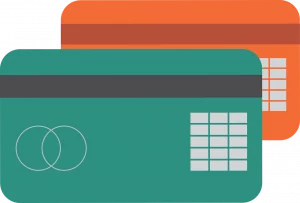It can be a shock and often upsetting if your credit application is rejected, especially if you had pre-planned what you intended to do with the money, but the important thing is to remain calm and think rationally about your next steps.
Rest assured, you can certainly be approved for credit the next time you apply, but bear in mind that what you do after your credit card application is denied is important for making sure you don’t hurt your credit any further, and giving you a better chance next time.
Moreover, putting a positive spin on it, this can give you the opportunity to evaluate your financial decisions and habits, and improve your chances of being approved for other financial products too.
Why Was My Credit Card Application Rejected?
Credit score requirements.
Credit cards are usually available to applicants with a range of credit scores, but some providers may have a stricter credit score requirement than others do.
For instance, many of the top rewards credit cards require good or even excellent credit to get approved, which can be upwards of 700.
However, it’s important not to panic, as it will likely just take a little more shopping around for you to find a provider who has a more flexible credit score acceptance.
Insufficient income.
Card issuers typically don’t disclose how much money you have to earn to get approved. But if you’re a college student or only working part-time, it could prove difficult to convince a credit card company that you have the ability to repay all debts you charge to the card.
High debt.
The more debt you have, the harder it can be to keep up with all of your monthly payments. Credit card issuers prioritize on-time payments, and so if you have a high debt-to-income ratio, this could hurt your odds of being accepted.
If you do have outstanding debt payments, you should consider paying these off before you apply again.
How to Get Accepted For a Credit Card
1. Ask why you were declined.
Before you reapply, you should firstly find out why you were declined, as this can help work out your chances of getting approved next time.
Contact the lender who declined your application and ask why you were declined. You may not receive specific details, but it may provide an outline reason.
2. Check your credit record.
If you were rejected because of something related to your financial history, check your credit record to find out what is affecting you.
Your credit report should highlight anything that is working against you, for instance, debt build-up or a series of missed payments.
3. Don’t re-apply straight away.
You might need the money, but if you want a better chance of being approved next time, you shouldn’t reapply straight away, even with a different lender, as more unsuccessful applications will only reduce your credit score and ability to borrow further.
This is because every credit application you make – successful or not – appears on your credit record, so if you make several in a short time, lenders are likely to think you are desperate for cash.
This is an obvious ‘red flag’ and may put them off lending to you.
